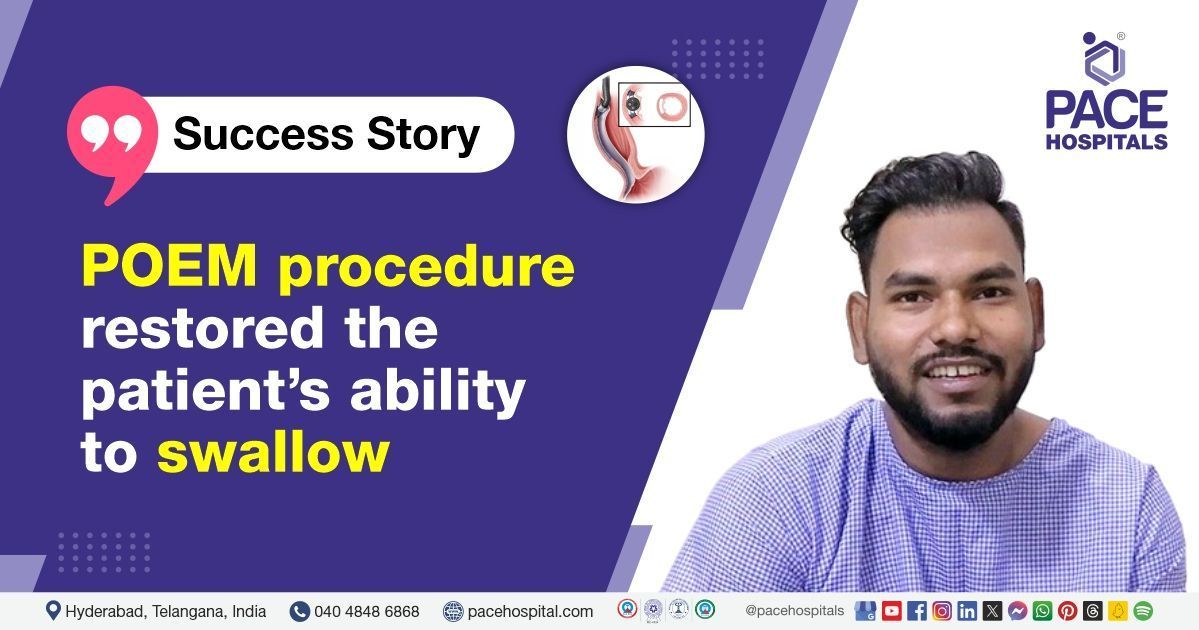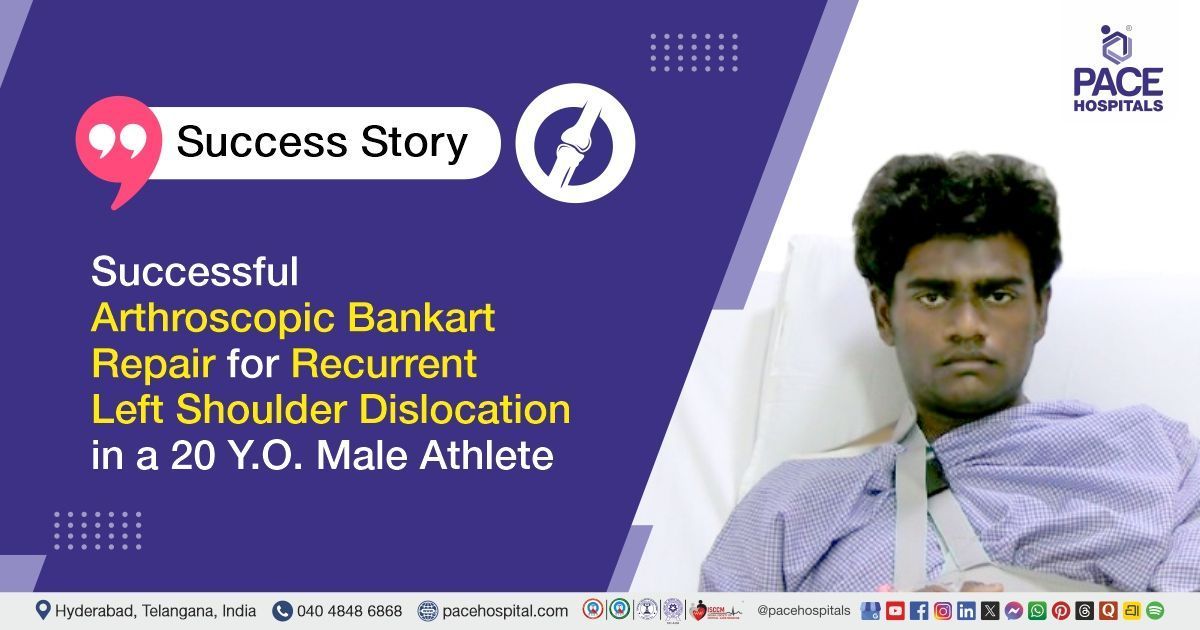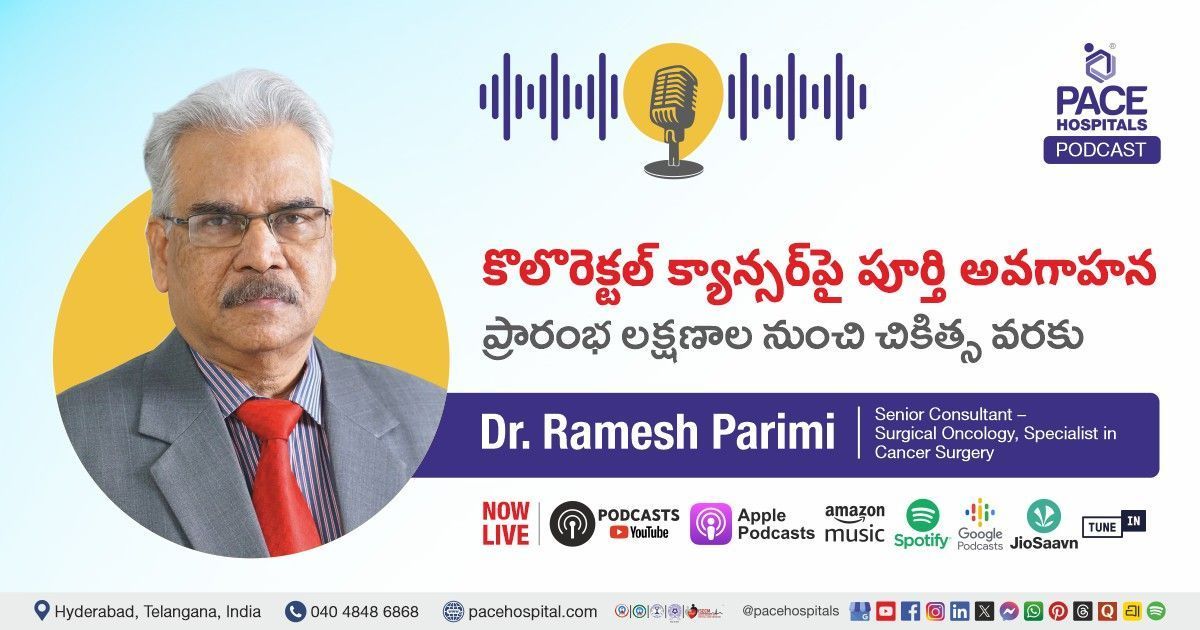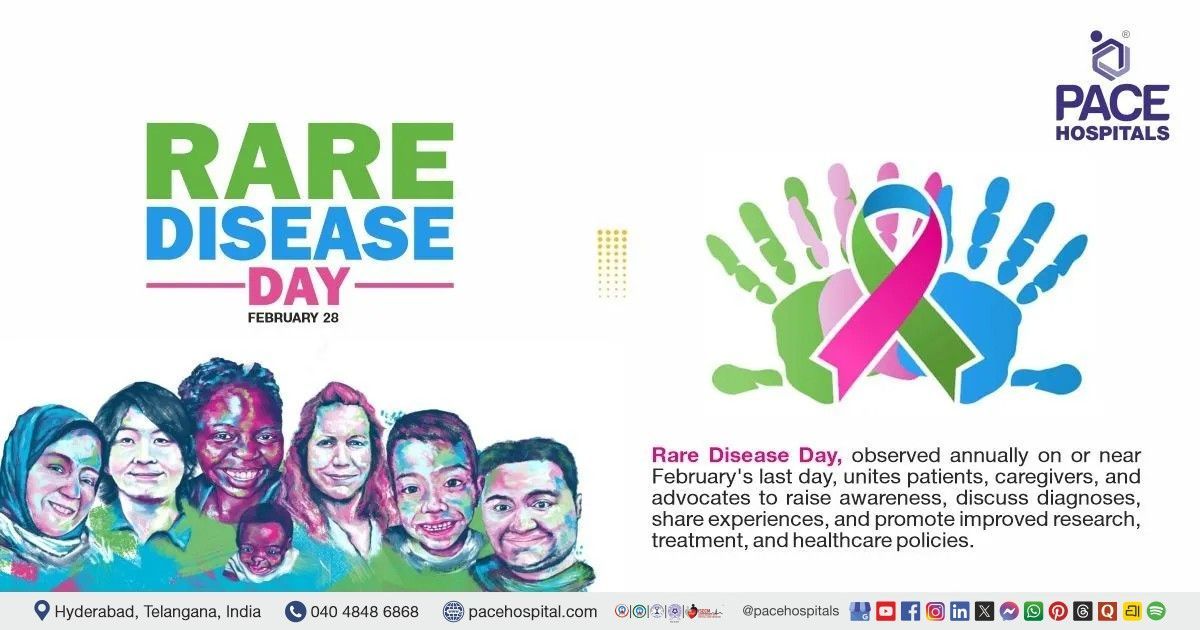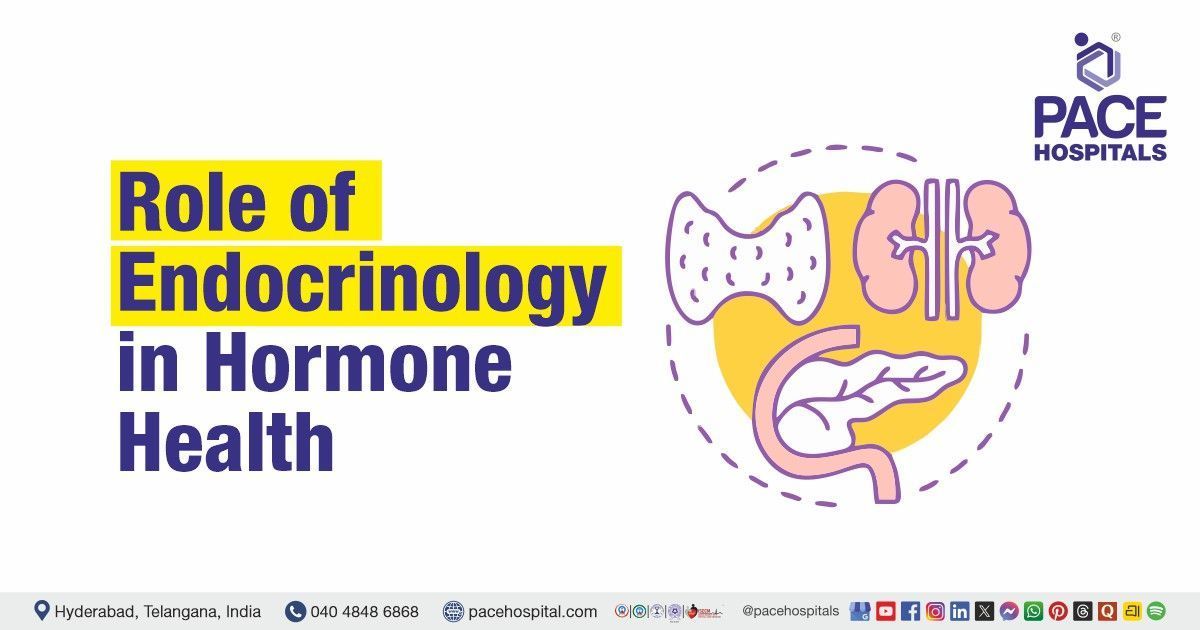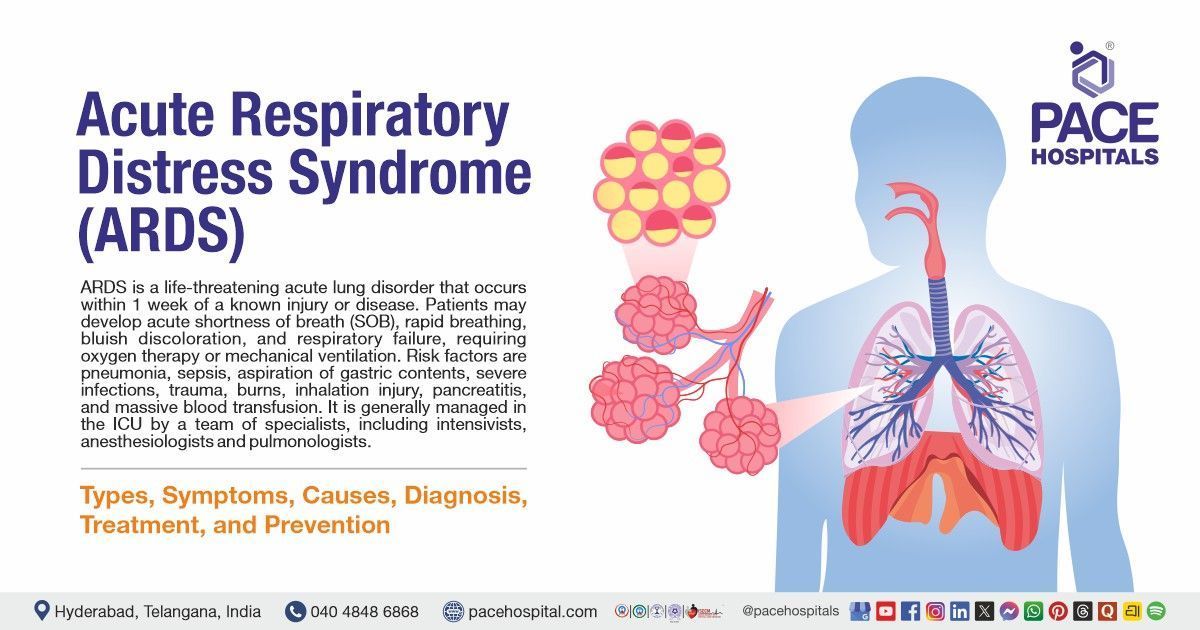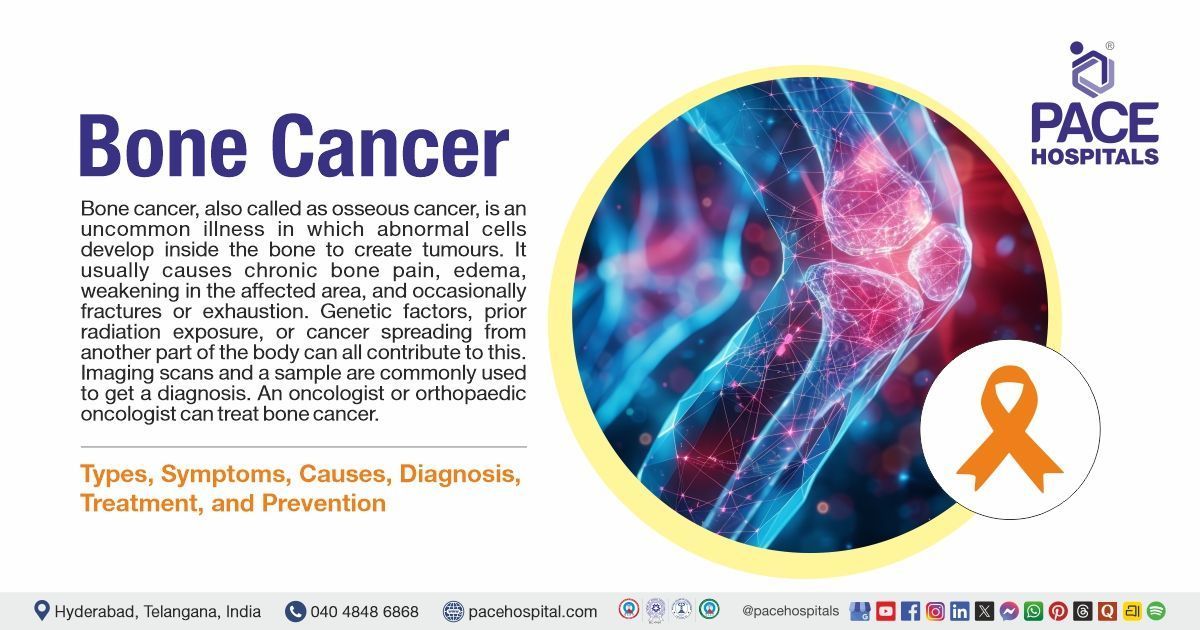POEM procedure restored the patient’s ability to swallow | Case study
Pace Hospitals
PACE Hospitals' Gastroenterology team successfully performed POEM procedure on a 25-year-old male from Bangladesh with achalasia cardia, enhancing his ability to swallow and eat comfortably.
A 25-year-old male patient from Bangladesh (Rasel Parves) with a history of
achalasia cardia was referred to
PACE Hospitals, Hitech City, Hyderabad for further treatment.
Medical History and Diagnosis
Delving deeper, it was understood that the Bangladeshi patient was experiencing issues with swallowing. Upon visiting their local healthcare centres, the patient was diagnosed with Achalasia Cardia Type II.
The healthcare experts advised the patient to undergo Achalasia Cardia Treatment in Hyderabad, India, under the care of the Gastroenterology Department, ensuring comprehensive management of the condition.
The POEM procedure falls under third space endoscopy. The third-space endoscopy (also called submucosal endoscopy) is a collective term given to a group of endoscopic techniques which operate within the submucosal domain (the wall of the gut called the submucosal space). In a few cases, third-space endoscopy also delves into muscular and subserosal layers.
Understanding that execution of the POEM procedure requires competency in third space endoscopy, with multiple cognitive and technical skills to achieve the proficiency, the patient initiated their quest for centres that perform POEM procedure with accuracy.
In their search, they came across PACE Hospitals in Hi-Tech City, Hyderabad, in India. Compared to other centers, PACE Hospitals are equipped with state-of-the-art advanced endoscopes & electrosurgical units with 3D visualization systems for POEM procedure, centralized HIMS (Hospital Information System), round-the-clock guidance from highly qualified surgeons and physicians along with minimal waiting time for both inpatient and outpatient processes among other expertise facilities – all within affordable prices.
Course in PACE Hospitals
Upon being admitted to PACE Hospitals the diagnosis was confirmed (achalasia cardia type II) through appropriate investigations such as oesophageal manometry, integrated relaxation pressure and barium swallow test.
Treatment surgery
After consultations with the team of Therapeutic Endoscopists, Dr. Govind Verma, and senior consultant gastroenterologist Dr. M. Sudhir, it was concluded that the POEM Surgery in Hyderabad at PACE Hospitals, under the care of the Gastroenterology Department, was the most appropriate approach to effectively managing the patient's condition.
With necessary investigations done & clearances obtained, the patient was administered intravenous antibiotics and later the POEM procedure was performed.
Upper gastrointestinal endoscopy was performed well, and the fundus part of the stomach was deemed normal. The gastroesophageal junction from incisors is at 42 cm which lies within the normal range (32–50 cm). CO2 insufflation was done for better visibility. At 9 cm above the gastroesophageal junction, with a T knife, submucosal tunneling was done. Circular muscle was cut with hybrid knife and the tunnel was closed with Olympus clips. The procedure was uneventful.
Aftermath
Post POEM Procedure in Hyderabad at PACE Hospitals, the patient was shifted to ICU and was kept on observation. The necessary medicines, antibiotics, multivitamins, antiemetics, analgesics, antipyretics & other supportive care were given. The oral gastrograffin test was done, and it showed a free flow of gastrograffin across the gastroesophageal junction without any retention, depicting a successful outcome of the procedure. The test showed no contrast extravasation. Gradually the patient started achieving symptomatic stability, and a liquid diet was initiated.
The patient was discharged haemodynamically stable and advised to take up liquid diet for three days followed by semisolid diet for five days. After every meal, lukewarm water is prescribed. The patient was also instructed to contact Gastroenterologists in Hyderabad at PACE Hospitals at once in case of fever, abdominal pain or vomiting developed.
The patient was discharged haemodynamically stable and advised to take up liquid diet for three days followed by semisolid diet for five days. After every meal, lukewarm water is prescribed. The patient was also instructed to contact PACE Hospitals at once in case of fever, abdominal pain or vomiting developed.
After a month, the patient was asked to get a review by Dr. Govind Verma about his status.
Conclusion
This case highlights the effectiveness of the POEM procedure in treating achalasia cardia by offering advanced, minimally invasive gastrointestinal care, resulting in significant symptom relief and enhanced patient outcomes.
The efficiency of the gastrograffin test
Orally administered diatrizoate (Gastrografin) is absorbed in only small amounts from the gastrointestinal tract in adults. However, when Gastrografin exits the intestine—such as in cases of anastomotic dehiscence or perforation—it can be introduced into the peritoneal cavity, where it is absorbed into the bloodstream, excreted by the kidneys, and detected in the urine. Detection is achieved by precipitation with concentrated hydrochloric acid, resulting in a characteristic white precipitate.
This diagnostic test was first described in 1965 by McGraw et al. Since then, its reliability has been subject to varying assessments. Despite this, the Gastrografin test remains a simple and valuable diagnostic tool, particularly useful in settings where radiographic facilities are limited, for immobile patients, in cases of suspected perforation, and when radiographic findings are already positive.
A gastroenterologist may find the Gastrografin test especially helpful in urgent diagnostic evaluations, given its ease of use and adaptability across different clinical environments.
Gastrografin is a water-soluble, high-osmolality contrast medium that has both diagnostic and therapeutic applications—particularly in cases of adhesive small bowel obstruction (SBO). Experimental and proof-of-concept studies have demonstrated that oral Gastrografin is safe and effective, relieving up to 70% of adhesive SBOs when administered within the first 24 hours. This effect is primarily due to its hyperosmolar nature, which draws fluid into the bowel lumen, reduces edema, and enhances peristaltic activity.
In the hands of a skilled
gastroenterologist/gastroenterology doctor, timely use of Gastrografin can often eliminate the need for surgical intervention, particularly in settings where surgery is not feasible or readily available.
Share on
Request an appointment
Fill in the appointment form or call us instantly to book a confirmed appointment with our super specialist at 04048486868

